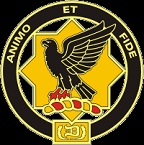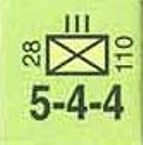ORANGE
Posts: 198
Joined: 12/3/2007
Status: offline

|
quote:
ORIGINAL: Ike99
quote:
ORANGE-I would like to see the proof of these alleged widespread atrocities of Allied Troops in the Pacific theatre.
Where were these widespread killings of POWS? And what do you mean by widespread? Do you mean that one POW was killed in the Aleutians and one killed in Borneo so that they were widespread spatially? Or did one occur in 1941 and another in 1945 so they were widespread chronologically?
Yeah, your getting a real history lesson now eh ORANGE? Didn´t see all this stuff in your history book I´d bet.
"What kind of war do civilians suppose we fought, anyway? We shot prisoners in cold blood, wiped out hospitals, strafed lifeboats, killed or mistreated enemy civilians, finished off for the enemy wounded, tossed the dying into a hole with the dead, and in the Pacific boiled the flesh off enemy skull to make table ornaments for sweethearts or carved their bones into letter openers."
Edger L. , Jones, a former American war correspondent in the Pacific as published in February 1946 issue of Atlantic Monthly pg64.
a young American soldier on Okinawa, who "snatched up a submachine gun and unforgivably massacred a line of unarmed Japanese soldiers who had just surrendered."
William Manchester, Goodbye, Darkness, his 1980 memoir of fighting in the Pacific
Professor E.B. Sledge, an American biologist, painfully recalled .....:severing the hand of a dead Japanese as a battlefield trophy, "harvesting gold teeth" from the enemy dead, urinating in a corpse's upturned mouth, shooting a terrified old Okinawan woman and casually dismissing her as "just an old gook woman who wanted me to put her out of her misery".More terrifying still, Sledge found himself coming close to accepting such conduct as normal.
Memoir published by Presidia Press in 1981
A month later, on June 21, he summarized the conversation of an American general who told an unsuspecting Japanese prisoner was given a cigarette and then seized from behind and has his throat "slit from ear to ear" as a demonstration of how to kill Japanese. ¨Our men think nothing of shooting a Japanese prisoner attempting to surrender.¨
Lindbergh, American aviation pioneer in his memoirs with the US Marines in the Pacific.
...wounded Japanese attempting to surrender were ordered shot by the American commander.
Denis Warner, passing his own firsthand experience on Bougainville.
There you go Sarge. Start Spinning. 
I´m thinking this story didn´t make it into LIFE magazine along with those demonizing the Japanese and skull pictures....
On the 22nd of August the camp commander held a speech in the Indonesian language which I could understand. He told us that the Emperor of Japan had the pleasure in telling us that he had decided to end the war.
However after a couple of weeks the Muslim Militia was infiltrating the area. They were forcing the Indonesian population to stop helping us. In those days these Militia were called extremists or permoeda’s, nationalists, T.K.R. Indo’s etc.
The Japanese under the command of Major KIDO fought shoulder to shoulder with the British against the Indonesian uprising. The seven camps in and around Ambarawa were attacked by thousands of Idonesian rebels which prevented any food transport. This is all described in Wing Commander T.S. TULL’S report.
After sixty years I still remember all the good people who were so friendly to us. The local Indonesian population, the british soldiers and ghurka's, the british sailers and last last but not least the german POW's. Even the Japenese commander had a weak moment when he gave me a biscuit.
These were my experiences of the Pacific War.
J.E.H. Rijkee prisoner of the Japanese 4 years.

Forgive me but I am not aware that war correspondents were armed so I am a little hesitant to accept one stating he, along with others, shot prisoners in cold blood and blew up hospitals. As a bonus he also apparently served at sea where he was a pilot and strafed lifeboats.
You also seem to ring up the treatment of the Japanese dead a lot. I am more concerned with the treatment of the living. To see the difference between the Axis and Allies one just has to look at the record of each side after winning territory. There is no question the Japanese and Germans were more brutal.
Even if all of your sources are truthful I would put them in the category of the exception proves the rule not that these actions were normal.
You are also trying to judge people in the past by modern standards. This is not a legitimate standard. You have to judge their actions to their contemporaries. It is partly because of the high standard the United States set that the standard has been raised.
_____________________________

|
 Printable Version
Printable Version




















 New Messages
New Messages No New Messages
No New Messages Hot Topic w/ New Messages
Hot Topic w/ New Messages Hot Topic w/o New Messages
Hot Topic w/o New Messages Locked w/ New Messages
Locked w/ New Messages Locked w/o New Messages
Locked w/o New Messages Post New Thread
Post New Thread